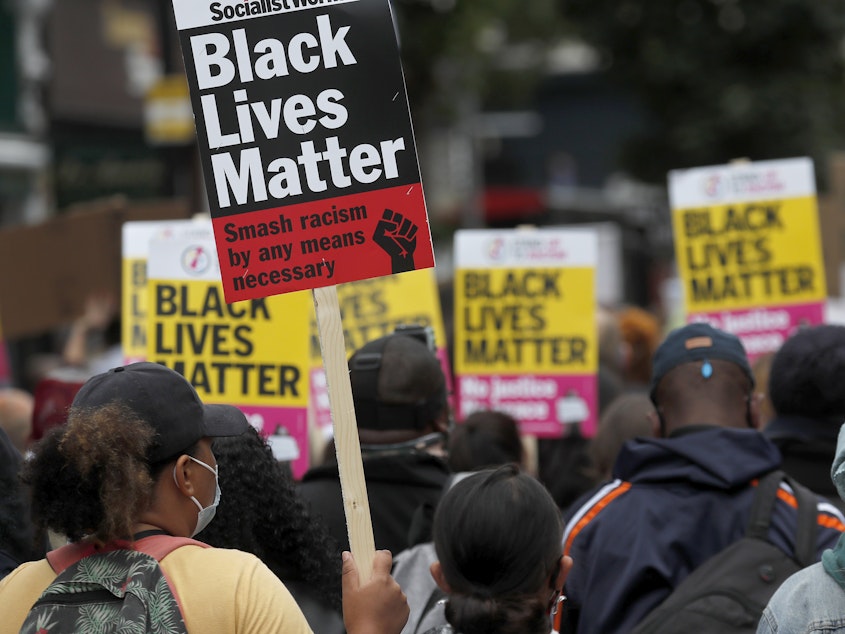U.K. Government Report Draws Criticism Over 'Historic Denial' Of Race Issues

LONDON — A U.K. government report on racism commissioned in the wake of last year's Black Lives Matter protests has drawn sharp criticism from racial equality advocates, who have called it "deeply cynical" and "a truly historic denial of the scale of race inequality in Britain."
On Wednesday, the day the report was released, Samuel Kasumu, the government's most senior adviser who focuses on race, told colleagues he would be stepping down. No. 10 Downing Street insisted the timing was coincidental.
The Commission on Race and Ethnic Disparities was impaneled last summer after tens of thousands of people protested across the U.K. following the killing of George Floyd. In its report, the commission acknowledged that racism remains a "real force" in the country.
But it said that the British system is no longer "deliberately rigged against ethnic minorities," and that, too often, "racism is the catch-all explanation" for poor life chances. The report said the evidence showed that geography, family influence, socio-economic background, culture and religion have more significant impact.
The commission said the term "institutional racism" should only be applied when deep-seated racism can be proven and that minorities should not "absorb a fatalistic narrative that says the deck is permanently stacked against them."
Sponsored
The commission was led by Tony Sewell, a controversial, former teacher from the London district of Brixton, who referred to last year's protest as a "lower middle-class revolt."
"For some groups historic experience of racism still haunts the present and there was a reluctance to acknowledge that the UK had become open and fairer," the commission wrote.
It also suggested the slave trade wasn't entirely negative: "There is a new story about the Caribbean experience which speaks to the slave period not only being about profit and suffering but how culturally African people transformed themselves into a re-modelled African/Britain."
The report's findings infuriated many activists who accused the commission of trying to gaslight British minorities. They cited the government's own statistics, that black people in England and Wales are nine times more likely to be stopped and searched by police than white people.
They also pointed out that Black and South Asian communities have been the hardest hit by COVID-19. Researchers have attributed that, in part, to the fact that more minorities serve as front-line workers and, in some cases, live in more crowded, multi-generational homes, where it has been easier for the virus to spread.
Sponsored
Simon Woolley, a former equality and human rights commissioner, said the report did not answer why so many ethnic minorities suffer inequality in education, health, housing and employment.
"To have published it any time in the last 20 years would have been seen as a whitewash," Woolley wrote in The Guardian newspaper. "To do so after the months of heartache and the awareness-raising of the past year is almost criminally negligent."
Rehana Azam, national secretary for the GMB trade union said it felt like a "deeply cynical report," and called it "completely irresponsible and immoral." [Copyright 2021 NPR]
